
Honours student makes documentary about Roman emperor in Katwijk
He could also have written a paper for his honours assignment, "but I thought it would be fun to do something creative," says history student Eden Dijkstra. With the documentary 'Caligula in Katwijk', he breathes new life into the centuries-old legend of a wayward emperor.
Eden Dijkstra had just finished his bachelor thesis when he had to come up with a creative final assignment for the Honours College Archaeology & Society. He chose to make a documentary. "At university, you never really get the chance to do that. Besides, I was also a bit done with theses for a while," Eden jokes.
The 21-year-old history student had been inspired by the Dutch public broadcast series Het Verhaal van Nederland, with Daan Schuurmans as narrator. "I thought: I want to do something like that. Re-enactment footage, interspersed with a presenter. Of course, my performance did become less professional."
Strange battle
'Caligula in Katwijk' zooms in, as the voiceover tells us, on "one of the strangest battles in history", fought by the Roman emperor Caligula (12-41 AD). In the war against Britain, the general is said to have ordered his soldiers on a western European beach to collect shells, which he named the "loot of the sea".
-
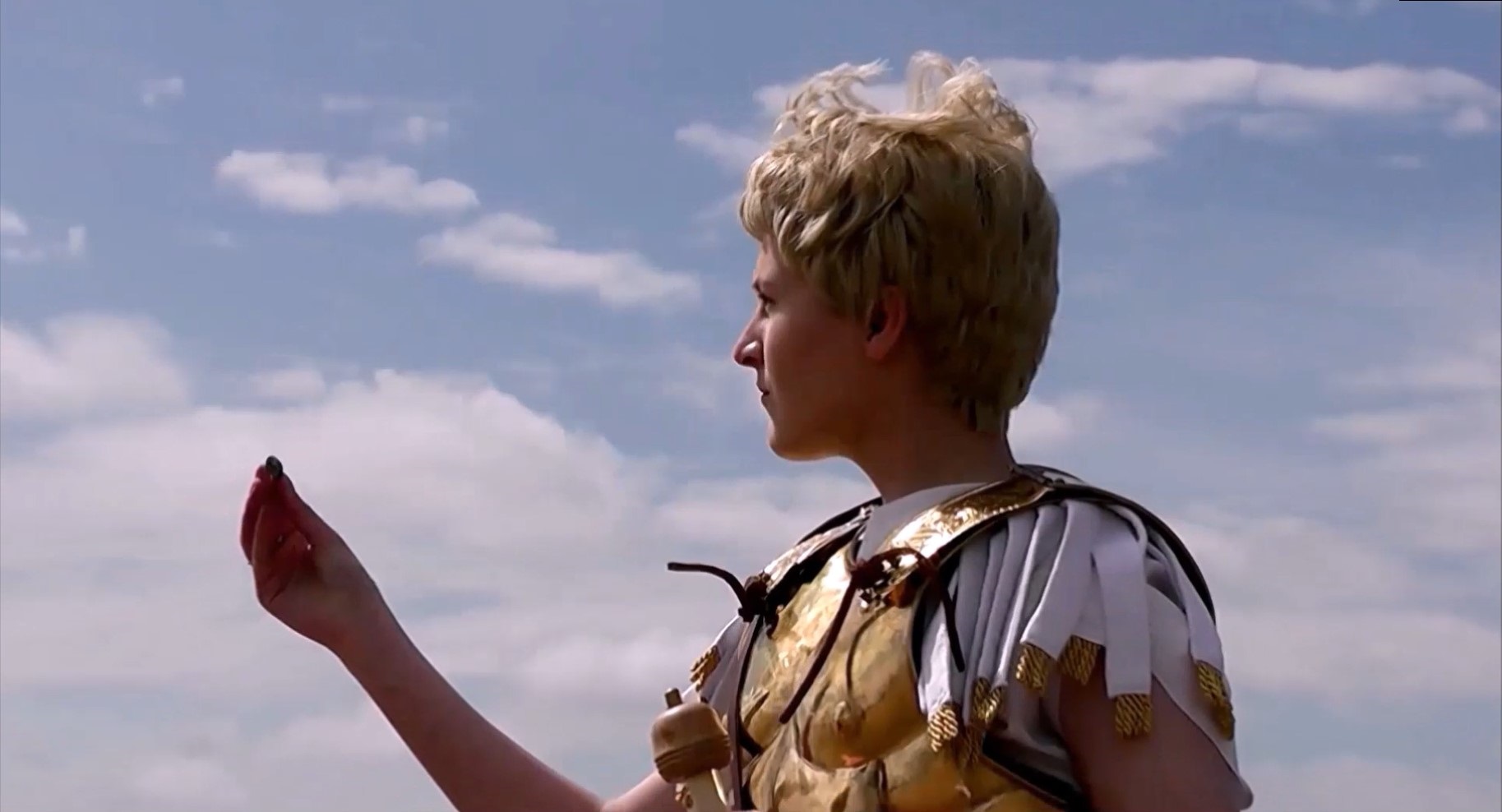
Caligula inspects the loot. Image: 'Caligula in Katwijk' -
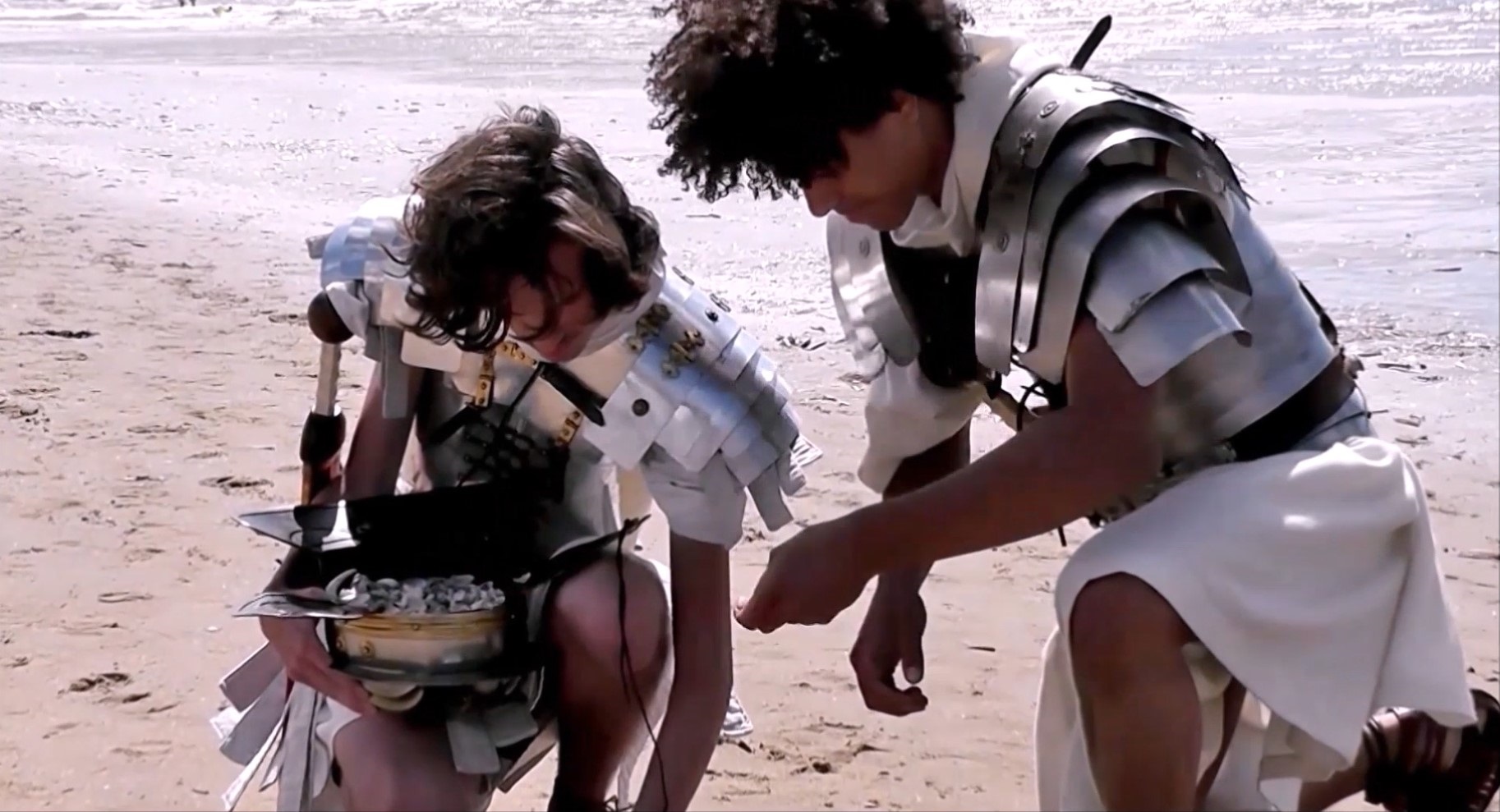
Soldiers on shell hunt. Image: 'Caligula in Katwijk' -
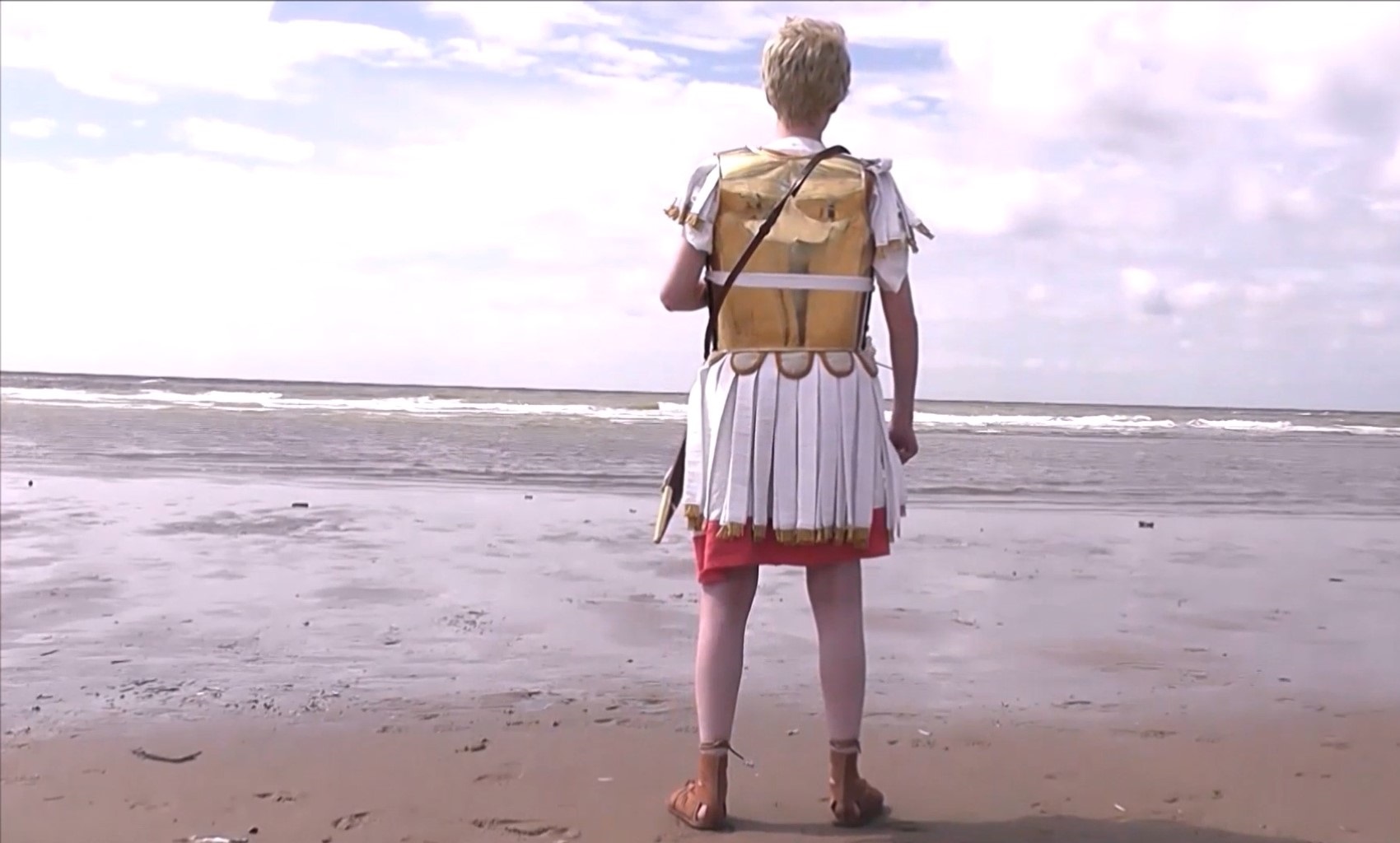
Caligula gazes across the sea towards Britannia. Image: 'Caligula in Katwijk' -
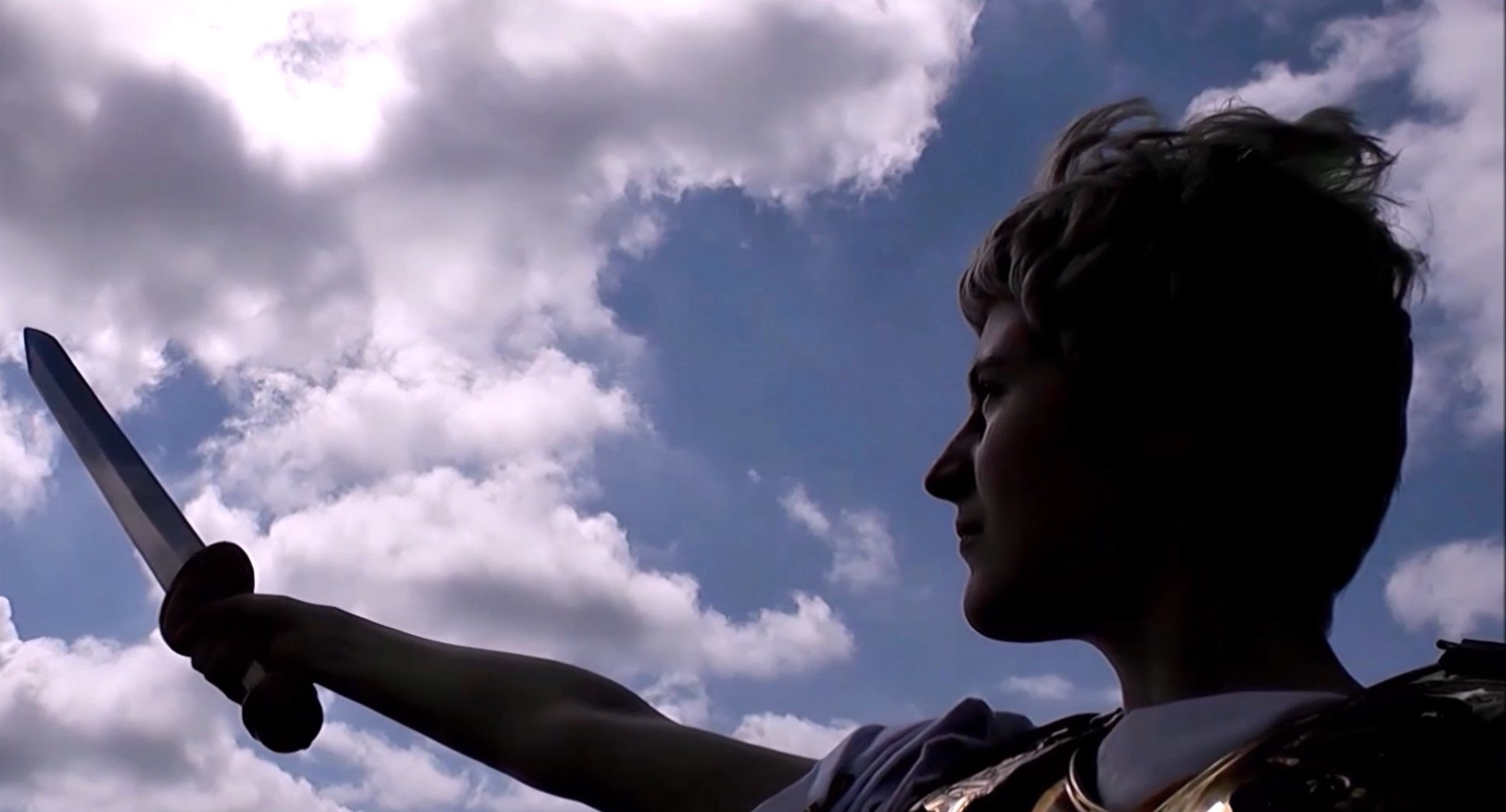
Caligula raises his sword. Image: 'Caligula in Katwijk' -
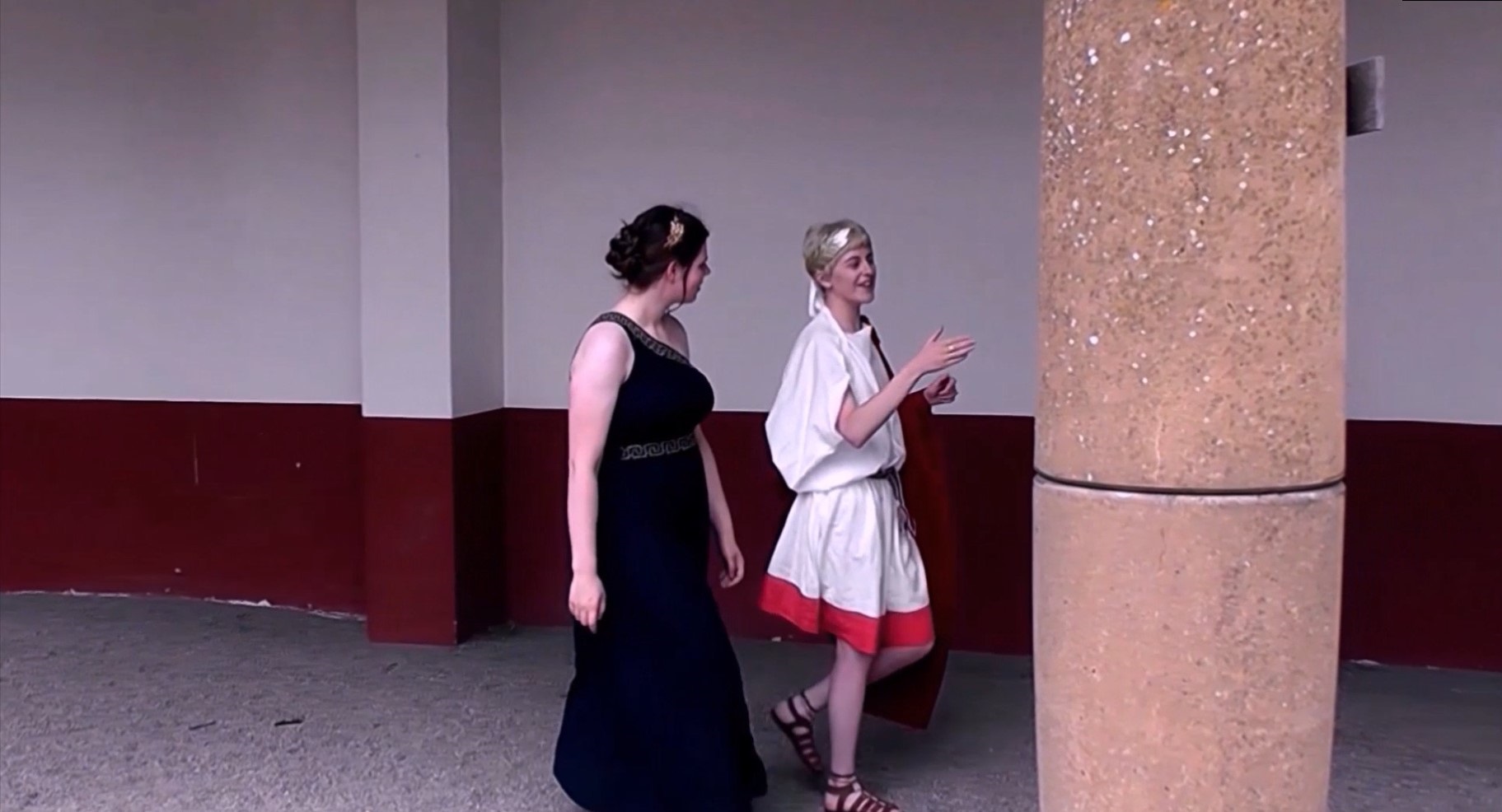
Caligula with his sister Drusilla. Image: 'Caligula in Katwijk'
In the documentary, Eden investigates whether this remarkable event could have taken place in Katwijk. One clue for this is that a wine barrel from Caligula's personal stash has been unearthed there. Eden: "I know that more excavations are now being done in Katwijk. For instance, a fort was recently recovered. That makes it even more plausible that Caligula had really been there."
However, Eden's film cannot give a definitive answer as to the where and why of this strange story. "What I find particularly interesting is that you can look at one single piece of text from an ancient source and there are so many theories about it." There is no consensus in academia on the passage. It is possible that it was meant to blacken Caligula. Collecting shells might also have been an appropriate ritual within Roman religious-military culture.
Out of the comfort zone
What is certain, is that Eden enjoyed the project. "In my studies, it's mainly a lot of writing, a lot of reading. Now I also went to many places. Furthermore, it was great fun to work with people from outside an academic context. For example, I knew the actors through Instagram, and a friend from art school helped me with typography."
In short, the Honours assignment gave Eden the space to step outside his comfort zone. And that is exactly the intention, says Marike van Aerde, coordinator of Archaeology & Society. "Students are given the freedom to explore their own ideas. This allows them to work on both their academic and creative skills and also really seek that connection between archaeology and society."
Due to the selected cookie settings, we cannot show this video here.
Watch the video on the original website or"Creative projects like Eden's fit this perfectly," continues Van Aerde, who is proud of the result. "I am especially proud that Eden shows here that students can excel not only with high grades, but also precisely through the creativity and originality of what they come up with and develop themselves."
Certificate ceremony
For Eden, the documentary marked the conclusion of his time at the Honours College. He is now looking forward to the certificate ceremony in November. Whether he will continue making videos after that? Eden laughs: "If there ever comes another project like this, I will definitely think about a video format. But I am looking forward to writing a thesis again, too."
(Text: Michiel Knoester)
